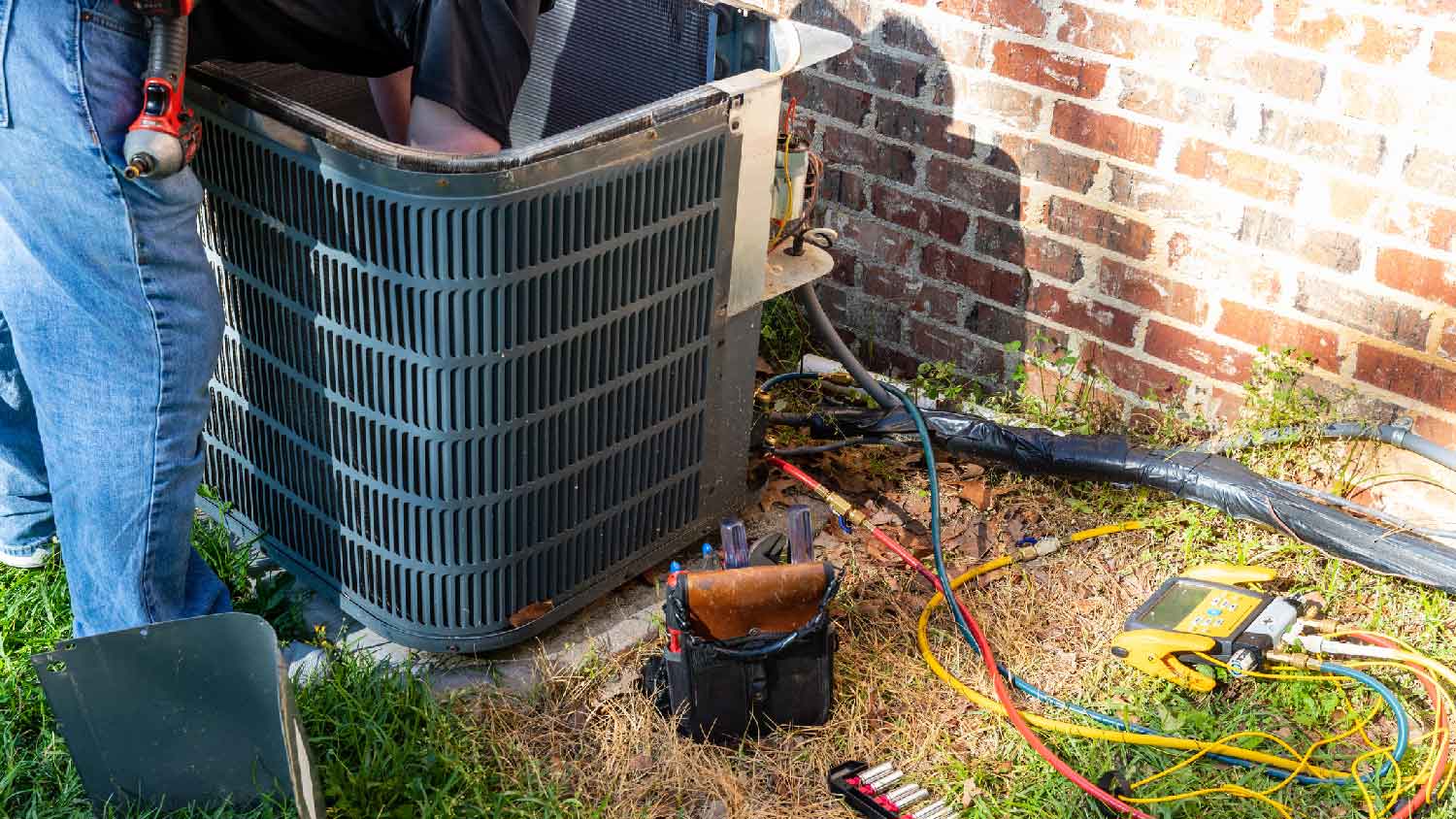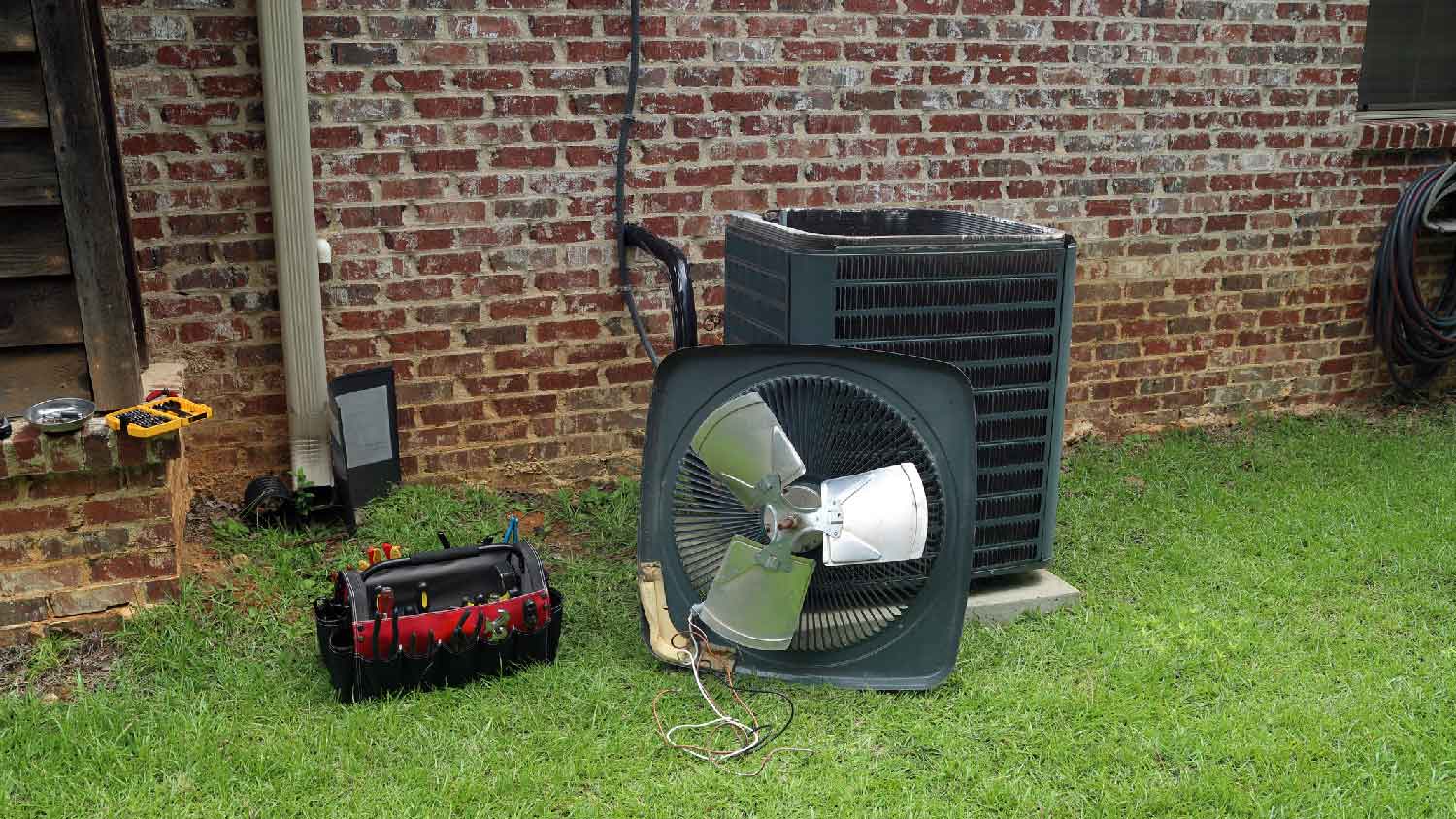
Furnace cleaning is an essential annual chore to keep your home safe. Find out common furnace cleaning costs by type and size of furnace with this guide.
When AC coils stop working, your AC unit stops working


Condenser coils and evaporator coils are critical to the cooling process of an AC system, but sometimes they don’t last as long as the system. So, how long do air conditioner coils last?
And when should you consult an AC repair pro for assistance? Don’t worry; we’ve got you covered. Here’s what you can expect from the life expectancy of your AC’s evaporator and condenser coils.
The actual lifespan of air conditioner coils is 10 to 15 years, depending on a few factors. With proper care and maintenance, high-quality evaporator or condenser coils can last up to 20 years.

The longevity of air conditioner coils varies for different types of air conditioners and brands of coils. Here are some of the main factors that affect how long air conditioner coils last.
Climate can impact how long air conditioner coils last differently for an evaporator coil vs. condenser coil. Since condenser coils are located in the outside AC unit, exposure to the elements makes them more vulnerable to debris from windy weather or excessive precipitation. On the other hand, as an evaporator coil works to remove heat from the air, the hotter the climate, the harder it has to work. This process can contribute to wear and tear over time.
Debris can also affect evaporator coils and condenser coils differently. Condenser coils are designed to handle outdoor airflow and you can remove debris like leaves, dirt, and grass clippings more readily, which might otherwise impede airflow and lead to overheating. Since evaporator coils are indoors, they are more likely to accumulate dust and other indoor air particles that can clog the coils more subtly, leading to a decline in performance and potentially earlier failure if not regularly maintained.
Insufficient maintenance tends to affect the longevity of evaporator coils more than condenser coils because they are more difficult to access. Evaporator coils are also more challenging to clean as they require specialized cleaners, whereas you can usually clean condenser coils with a stiff spray from the garden hose.
Think it’s time to replace your AC conditioner coils? Before booking with an AC repair pro, check your manufacturer’s warranty to see if parts and repairs are covered. Here are the key signs that it may be time to replace air conditioner coils:
Your system is less than 5 years old and you notice a decline in cooling performance.
The fins on your condenser coil are dented or damaged.
Your monthly energy bills are substantially higher than average.
There are visible signs of rust or corrosion.

To keep your conditioner coils in tip-top shape, follow these maintenance tips.
Clean coils at least once a year.
Keep an eye out for refrigerant leaks, as these can erode your AC’s inner components and cause cracks or holes in your evaporator coil over time.
Ensure that nothing is blocking the airflow of the evaporator and condenser coil units.
Keep plants, shrubs, and trees at least 2 feet away from the condenser unit to ensure adequate airflow and prevent debris from blocking the unit.
If you’re not sure how to clean your coils, hire professional HVAC services to help you maintain them safely without damaging the equipment.
Hire a local HVAC technician to inspect your system annually.
When there’s an issue with your AC coils, your AC system might not run as efficiently or it may stop working altogether. Here are some troubleshooting steps to take on your own before calling a professional:
Ensure that air filters, vents, and ducts are open and blockage-free.
Check for ice buildup on the coil, which may indicate issues such as restricted airflow or low refrigerant levels.
If you’re wondering what to do if a heat pump freezes, check your evaporator coils to see if they’re dirty or clogged with debris.
If you hear a hissing sound near the evaporator coil, that may indicate a refrigerant leak, and you should call an AC repair technician as soon as possible.
A manufacturer’s warranty typically covers air conditioner coils against defects and premature breakdowns of equipment. However, it’s important to check the specifics of your AC’s warranty to learn what parts of the equipment are covered by your plan.
When facing problems with evaporator or condenser coils, a common dilemma is whether to replace AC coils or the entire system. In most cases, replacing the system is a better investment, especially for older units. While new evaporator coils are typically a universal fit, condenser coils must match the exact specifications of the unit, and they’re often difficult or impossible to find. Plus, only changing one coil can cause compatibility issues between the two coils, straining the system and causing it to break down sooner.
Additionally, for either part, there is considerable labor involved, averaging at roughly four hours or more, so that will add roughly $700 or more. The cost of replacing an evaporator coil ranges from $600 to $2,000, depending on the size, type, and brand. Due to the high-risk and complex nature of AC systems, you’ll need to hire an AC repair technician to ensure any repairs or replacements are done correctly and safely.
From average costs to expert advice, get all the answers you need to get your job done.

Furnace cleaning is an essential annual chore to keep your home safe. Find out common furnace cleaning costs by type and size of furnace with this guide.

When your heat goes out, it can cause a bit of a panic. But knowledge is power, so let's go over radiator repair costs before that happens.

What you’ll pay in Columbus, OH, for furnace repairs depends on many factors. Here’s a breakdown of what can go wrong and the cost to fix those issues.

Need to purchase a new gas furnace but aren’t sure which type is right for your home and needs? Taking a little bit of time to research furnaces to see which option is right for you can save you money over time. Here’s a look at five furnace types.

Take several factors into consideration when upgrading your HVAC system. Our guide will help you choose the right HVAC upgrade.

You’ll need to get creative if you want to run your portable AC in a windowless room. Here’s how to vent a portable air conditioner without a window.